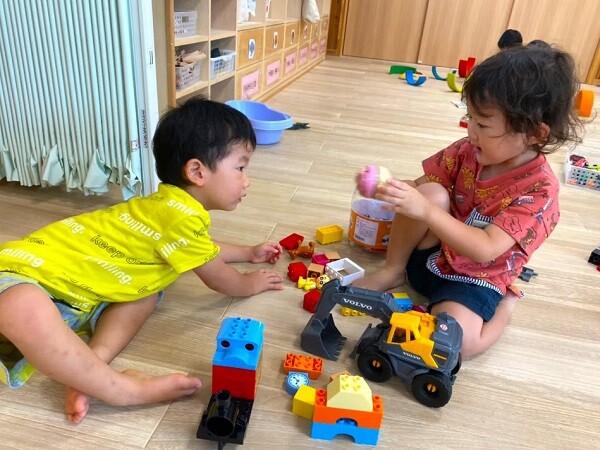Children with high EQ develop the ability to recognize, understand, and manage their own emotions as well as those of others. As a result, they learn to behave better in social situations and build positive relationships with their peers and teachers. So, what does high EQ bring to children?

Children with high EQ often know how to build and maintain good relationships.
– Children are able to recognize and understand their own emotions and those of others, responding appropriately in social situations.
– Children learn to control their emotions, preventing negative feelings from influencing their behavior and decisions.
– Children know how to build and maintain positive relationships with their peers, teachers, and family members.
– Children can resolve conflicts peacefully and effectively, reducing confrontations and creating a positive learning environment.
By creating a safe environment, teaching children to recognize and manage their emotions, and encouraging open discussion and communication skills, parents can foster the development of high EQ, which will enable their children to build strong relationships and effectively resolve conflicts at school.
As we know, high EQ is the key to academic success and lays a solid foundation for a child’s future development. In the event of a conflict with a peer at school, parents should guide their child on how to adjust their behavior. Therefore, psychologist Nguyen Ngoc Vui suggests ways to handle such situations and nurture high EQ in children as they grow up.


How does emotional intelligence (EQ) contribute to effective communication between children and their peers at school?
It’s important to understand that emotional intelligence (EQ) is an individual’s ability to recognize and manage their own emotions effectively. For example, managing time, emotions, finances, and the ability to bounce back from setbacks.
Two crucial aspects of emotional intelligence are empathy, the ability to put oneself in another’s shoes, and effective communication skills, which enable individuals to interact successfully with their peers and in their environment.
Thus, EQ plays a pivotal role in determining a child’s ability to communicate and connect effectively with their peers, as well as establish and maintain long-lasting relationships.

When children encounter difficult situations or conflicts with their peers, how should parents teach them to react to cultivate high EQ? (For example, when a child is falsely accused of taking a toy…)
Parents should tailor their approach to the child’s age and temperament. Of course, there are fundamental skills that both the family and the school need to impart to the child, such as communication, refusal, providing feedback, and self-defense against violence or harassment.
When children encounter challenging situations, parents can guide them by citing relevant examples. For instance, if a friend wants to borrow or take one of the child’s possessions, help the child recognize whether they truly like and value that item and would be uncomfortable lending it out. In such cases, teach the child how to politely and firmly refuse without causing offense.
In another scenario, if a child is falsely accused of taking a toy, they should know how to stand up for themselves and when to seek help from a teacher. If a conflict arises with a peer, parents should instruct their child on how to react appropriately, helping them understand what the conflict says about the relationship and whether they should continue playing with that friend.
By learning to resolve conflicts, children also develop their communication skills, listening to others’ perspectives and expressing their own views, which aids in rebuilding healthy relationships.

What exercises or activities can experts suggest to help children practice communication skills and boost their EQ?
EQ exercises should focus on two aspects: internal and external.
– Internal: Help children connect with themselves by asking questions like, “What am I thinking?” or “How am I feeling?” This introspection helps children identify their needs and wants. For instance, when faced with a choice, they can discern between a need and a want.
– External: Depending on a child’s personality, whether they are introverted or extroverted, teach them the fundamental skills of building friendships, initiating conversations, finding common ground, and refusing politely without offending others.
For instance, if a child is invited by a friend to join an activity but doesn’t want to, they could respond with, “Thank you for the invitation, I appreciate your trust in asking me to join. However, I need to study, so I won’t be able to participate.”
In other words, parents can guide their children by providing specific scenarios and teaching them how to politely refuse, give compliments, provide feedback, and apologize when necessary.

Can children learn to ask open-ended questions to encourage their friends to share their emotions and thoughts? If so, please suggest some questions.
This approach should be encouraged. Teach children to shift from closed questions to open-ended ones, as it fosters better communication and connection with their peers.
Here are some suggested questions:
– Instead of “Do you like eating bread?” ask “What is your favorite food?”
– Change “Are you happy?” to “How are you feeling?”
– Rather than asking “Can I play with you?” say “Let’s play together!”
By using open-ended questions, children create opportunities for deeper conversations and connections with their peers.



































